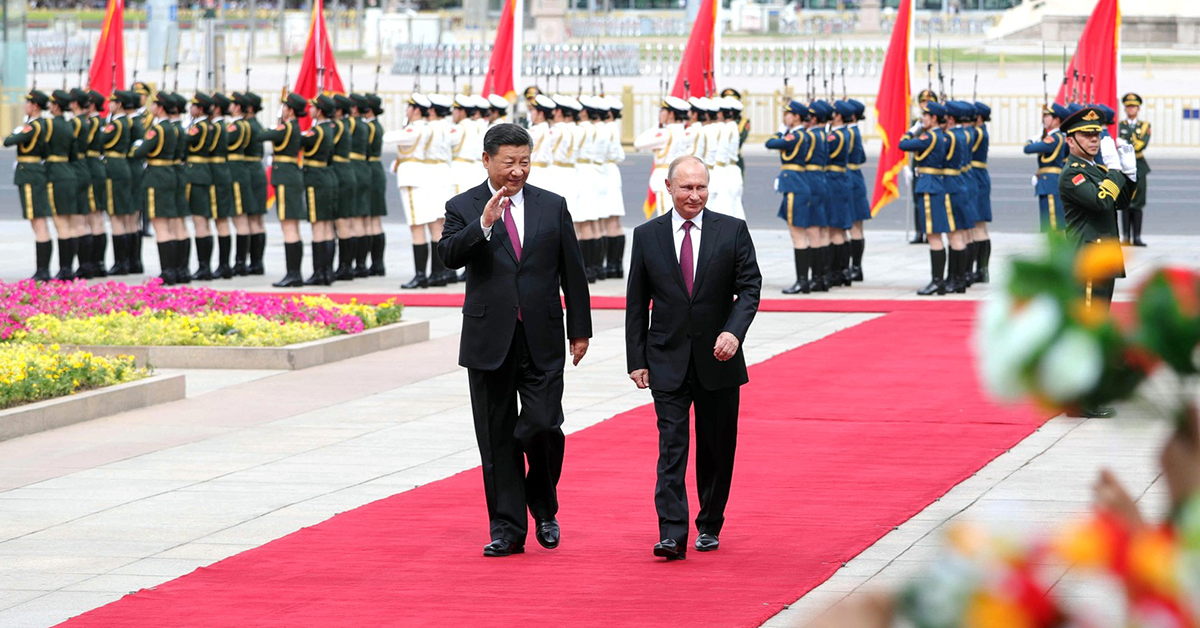One is often asked, what is the likelihood of Russia invading Ukraine? To which nearly everybody – except it seems the European public – answers: very unlikely indeed given the huge costs and enormous risks involved.
Which only raises the obvious question: why park 100,000 Russian troops on Ukraine’s borders if you’re not going to use them? Why indeed? But is this even the right question? I would suggest not. So what is?
The great Chinese writer on military affairs, Sun Tzu, provides us with something approximating to an answer. As he reminded his readers well over two thousand years ago, the art of war is not in fact to fight, but ‘to subdue the enemy… without fighting’. That, he concluded, was the ‘acme of skill’.
Whether Putin has studied Sun Tzu is what the late Don Rumsfeld might have called an ‘unknown unknown’. But one suspects he might (or possibly should) have done. As a former LSE Professor deftly argued some time back, there is every chance that Putin – like many other modern masters of strategy – has learned a number of lessons from Sun Tzu and applied them accordingly.
So what might Putin have learned, and what is he hoping to gain – short of war? Three goals, I would suggest.
One is to weaken Ukraine from within. As Oleksiy Danilov, Secretary of Ukraine’s National Security and Defense Council has pointed out, Russia wants to destabilise Ukraine, not invade it. Invasion would be too risky. However, by raising the stakes, Putin still achieves one of his objectives which is to soften up Ukraine and keep it on the back foot. One recent report outlined the consequences for Ukraine with brutal clarity: ‘Every report of another Russian plan to invade Ukraine is a blow to its economy, weakening the hryvnia, pushing up interest rates, and sowing panic among the public’.
The second gain for Putin lies within the West itself. Bruised by the Afghan withdrawal in August 2021 after an even more bruising four years of Trump, NATO still soldiers on. Nonetheless, there are some fairly big differences between what we might loosely describe as the “Anglo-Saxon” members of the Alliance and those European countries who have been desperately seeking a diplomatic way out of the crisis, partly to protect their already good relations with Russia (Hungary), partly to prevent the possible cancellation of Nord Stream 2 (Germany), but also in the case of both France and Germany to prove that there is a European solution to the problems facing Europe.
Biden may be opposed to war, possibly even to Ukraine joining NATO. But he is desperate to demonstrate US leadership and purpose after the Kabul fiasco. Unfortunately for Biden, Putin has proven to be a master of the game of divide and rule, negotiating with Macron here, keeping in close touch with Berlin there, while all the time warning Europe that if there is a conflict this is bound to lead to an even deeper energy crisis within a Europe which is already teetering on the economic edge.
Finally, the extended standoff over Ukraine has only cemented what was already a very close relationship between China and Russia. As I noted in a previous blog, throughout the crisis China has attacked the United States for having exacerbated, possibly even having caused, the standoff. China has also openly supported Putin’s call for a reordering of the whole European security architecture free of military alliances.
In a more recent and very lengthy communique, China has perhaps gone ever further. Indeed, in the communique, the two countries together not only argue against any NATO enlargement, and implicitly against NATO. They also make the much bigger point that both Beijing and Moscow as ‘world powers’ have to work closely together to help build a new multipolar order in opposition to what exists at the moment. From the point of the view of the West, the communique certainly presents a challenge.
Thus while its authors (referred to as ‘the sides’) celebrate the virtues of democracy, they go on to warn against promoting it by putting ‘pressure on other countries’. Those organisations of which Russia and China are active members, including the BRICs, the Shanghai Cooperation Organization, APEC and the UN are singled out for praise. The Belt and Road Initiative and the Eurasian Economic Union are also identified as increasingly significant bodies whose importance can only grow over time. The G20 also gets a special mention.
Other organisations, however, are not even mentioned, including the European Union, as well as other western dominated institutions such as the G7, the IMF and the World Bank. Inevitably, the new AUKUS security deal between Australia, the UK and the US is singled out for criticism. As the communique makes clear, it both increases the danger of an arms race and poses ‘serious risks of nuclear proliferation’ in the region. Russia meanwhile makes it plain that it will continue to support China in its efforts to resist any and all US activities in the Asian region. This in turn is backed up by an unambiguously clear statement that ‘Taiwan’ remains an ‘inalienable part of China’ and that any moves towards independence by Taiwan would or should be resisted.
Naturally enough, opinion remains divided about what all this, taken together, actually means. Some feel that the communique is little ‘more than a public relations exercise’. Others, however, insist that what the West is now facing – and the communique only proves this – is not some convenient partnership with few aspirations but instead a major, long-term threat to an already fraying liberal international order.
Meanwhile, the crisis in Ukraine (about which the communique actually says very little directly) rumbles on with no clear outcome in sight. It is certainly not beyond the bounds of possibility that the situation might spill over into some form of armed conflict. But if the analysis suggested here is correct – or at least halfway right – then that is something which Putin, and of course China, would have a strong interest in avoiding. Indeed, having already achieved several key objectives, Putin’s best course of action may well be to continue with what he is doing and reap the rewards without having to fire a shot. Sun Tzu would then have every reason to be proud of his Russian and Chinese pupils.
This article gives the views of the author, and not the position of the China Foresight Forum, LSE IDEAS, nor The London School of Economics and Political Science.
Zhōngguó Shíkè 中国时刻 (China Moments) are short comments which respond to current affairs reporting on China’s domestic and foreign policy.
The blog image, “Vladimir Putin awarded the Chinese Order of Friendship” is licensed under CC BY 4.0.






Spot on
On the contrary, Putin most likely DID NOT read Sun Tzu. He violated, in fact, 12 chapters out of the 13, starting with: lLaying the plans; waging war swiftly; attacking a strategy instead of cities, which is the lowest form of attacking an enemy; preparing for appropriate tactical dispositions; etc. I could go on.